A Quantum Materials Scientist innovates new materials for quantum devices such as superconductors, topological materials, and quantum dots. They analyze materials at the atomic level to design substrates that provide stable qubits and enhance quantum coherence times.
Research from 2025 indicates that quantum materials scientists earn between $75,000 and $155,000 globally; depending on their specialization, location, and institution. It requires knowledge of solid-state physics, chemistry, and nanofabrication to design and analyze materials that possess quantum features. At the moment, 1,800 to 2,200 quantum materials scientists are tackling the quantum hardware materials problem globally.
Businesses in the quantum computing industry, as well as national research labs and universities, invest in materials research because it influences the quality and scalability of qubits.

What is the average base salary?
Min. Qualifications
What You Need to Know
What does a Quantum Materials Scientist do?
A Quantum Materials Scientist researches and develops novel materials like superconductors, topological insulators, and quantum dots. These materials enable stable qubits and improved quantum device performance.
Why are Quantum Materials Scientists important for quantum computing?
They discover materials that extend qubit coherence times, reduce error rates, and enable scalable quantum processors. Material quality directly determines whether quantum computers can perform useful calculations reliably.
What qualifications are needed to become a Quantum Materials Scientist?
A PhD in Materials Science, Physics, or Chemistry is required. Experience in material characterization techniques, nanofabrication, and knowledge of solid-state physics and quantum properties are nice to have.
What is the average salary for a Quantum Materials Scientist?
Quantum Materials Scientists earn $75,000-$155,000 globally. American positions average $122,000. European roles around €102,000, and remote positions at $117,000 a year.
More Quantum Job Salaries
Cryogenic Engineer (Quantum Systems)
Builds ultra-low temperature systems for quantum hardware, earning $90,000-$185,000+.

Quantum Control Engineer
Designs and tunes quantum hardware control systems, earning $95,000-$190,000+.

Quantum DevOps Engineer
Manages quantum infrastructure and pipelines, earning $90,000-$180,000+.

Quantum Solutions Architect
Designs enterprise-ready quantum systems, earning $100,000-$210,000+.

Quantum Product Manager
Leads quantum product vision and delivery, earning $100,000-$220,000+.

Quantum Technical Writer
Creates documentation, and technical content for quantum computing products and research.


.svg)
.svg)

